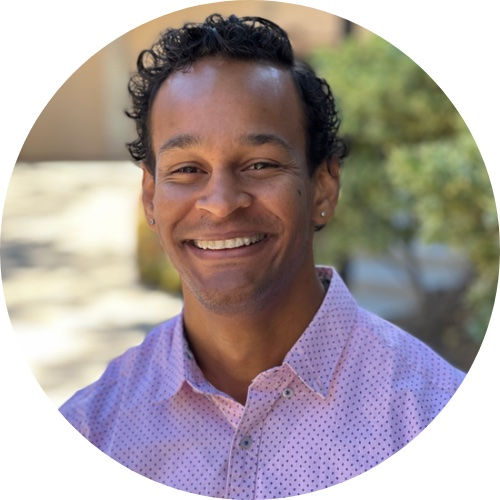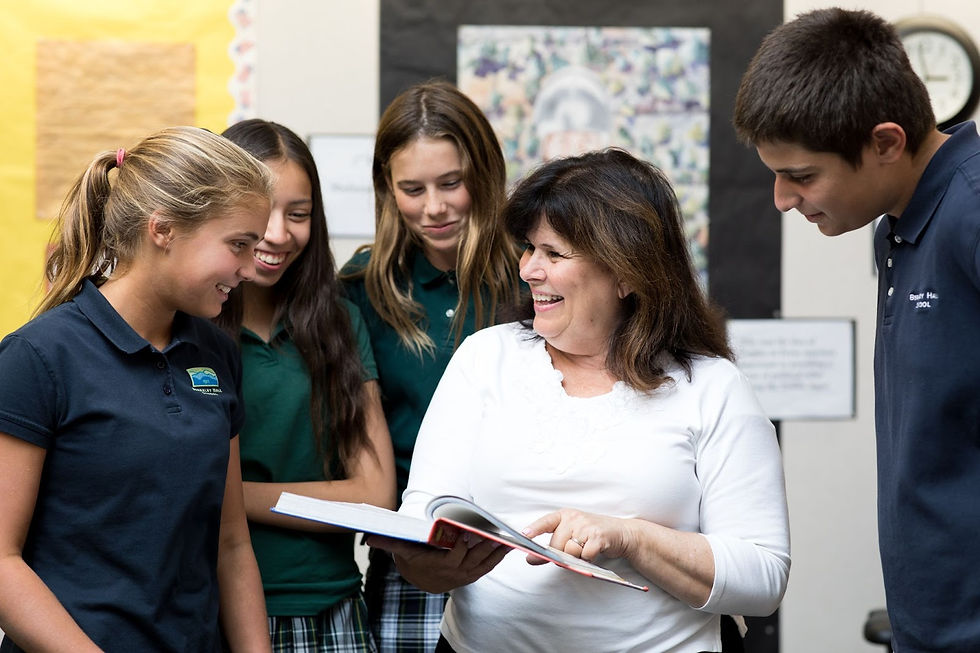Why do we Celebrate Black History Month at Berkeley Hall?
- Kendall Shoemake
- Feb 6, 2023
- 4 min read
Updated: Jul 3, 2024

The simple answer is because at Berkeley Hall we value every opportunity to inform, acknowledge, and represent a different perspective within our community. We strive to do this year round, and Black History Month gives us another specific opportunity to lean into this empathetic practice. This is one way we help shape and inspire our fearless scholars to become the change-makers of tomorrow.
Throughout this month, BHS administrators and faculty find creative ways to highlight important events and individual achievements associated with Black and African American history and culture. As with any cultural or social issue, we use different learning tools, mainly:
Education
Reflection
Engagement
Service
But it’s not only our students who take on this work. We believe all of us – students and educators – are lifelong learners and have opportunities to grow and make meaningful contributions. With this intention, some of us participated in the People of Color Conference earlier in the year and we are excited to share the insights we gained from that experience.

The People of Color Conference (POCC) is part of the National Association of Independent Schools. It’s been around for more than 30 years and is committed to equity and justice in teaching and learning at independent schools. At one of the conferences held in San Antonio, Texas I was joined by Mackenzie Scott, Director of Student Wellness and Isreal Spencer, Junior High Science Teacher. We attended seminars, master classes, and workshops on important topics relating to people of color and it gave us a safe space to talk about leadership, professional development, and networking. More than 7,800 adults and students from independent schools across the country attended which is a testament to the need for this important work!
Here are some take-aways:

Mackenzie Scott, Director of Student Wellness:
My whole career as an educator has been in the public school sector. I have served many young people of color in marginalized communities and my colleagues were also people of color. Often there was a collective understanding of cultures, home, and community dynamics. I am now continuing my career in an independent school where I am not only the only Black woman, but also the first Black woman administrator. To add, there aren't many students of color. On one end, I take a great sense of pride, on the other hand I am brought to pause. Attending POCC validated my role as a Black leader in independent schools and boosted my confidence. It allowed me to be in community with folks from around the world who looked like me. I sat alongside other Black women who were the "only ones" and "the first" at their school. I learned from Black and Brown folks who have been in independent schools for 10, 15, 20 years. I joined conversations with Black and Brown folks who truly understood and even had my experiences. It is one thing for folks to listen to your story, but another for them to genuinely see you, connect with you, uplift you, co-create with you, reassure you, and give you hope. I walked away with a new desire to thrive in my environment, to show up as me, to not "tone down" who I am, and to lead fearlessly. I look forward to paving the way for other young Black and Brown professionals who may be the first, the only, the other, or the different. I am walking away with the responsibility to thrive and not only survive.

Isreal Spencer, JH Science Teacher:
I was in awe of the magic that transpired at POCC. It was an opportunity to fearlessly share about working as a proud Black male educator. I often reflect on my experiences as a high school educator in the suburbs of Charlotte, North Carolina, and as a grade-level chair in a tough South-Central LA charter school. I saw myself not only in the teachers, the parents, the leadership team, but also in the students who inspired me to show up daily. There was a need that I filled, and I was appreciated and could see the effect of the work I was doing. As a Black educator in an independent school, I was forced to reinvent myself, revise my purpose, and at times find space where my presence, thoughts, and conversation could be appreciated fully.
This year’s POCC was a great reminder that I am not alone in the work that I am doing. Seeing people from around the world come together in one place was both moving and empowering. Being able to learn, question, reveal, and identify alongside BHS colleagues throughout the conference was both liberating and inspiring.
Reflecting back on what we learned reminds me of the quote, “With great power, comes great responsibility.” We are tasked with the responsibilities of taking up space, sharing with others what we know, educating those who may not, in addition to holding everyone including each other accountable to get the work done! I look forward to what’s to come at Berkeley Hall School.

Kendall Shoemake, AHOS: Programs and DEIB:
Some important questions we asked at the conference included What are our priorities? How can we objectively define and assess “inclusion” and “belonging”? We discussed the importance of a whole-community approach and utilizing an organization's mission, values, and strategic plan as a foundation for DEI work. I especially enjoyed a session that focused on the individual, and specifically, on the power one has to make a difference in the community and the lives of others.
I’m so grateful to Berkeley Hall School for supporting us in attending this conference. We were inspired by incredible speakers, collaborated with schools across the country to discover best practices, and found community. We are excited to put into practice our takeaways to further support the evolving school DEIB initiatives.
To learn more about BHS and register for an upcoming admissions event, click here.






Comments